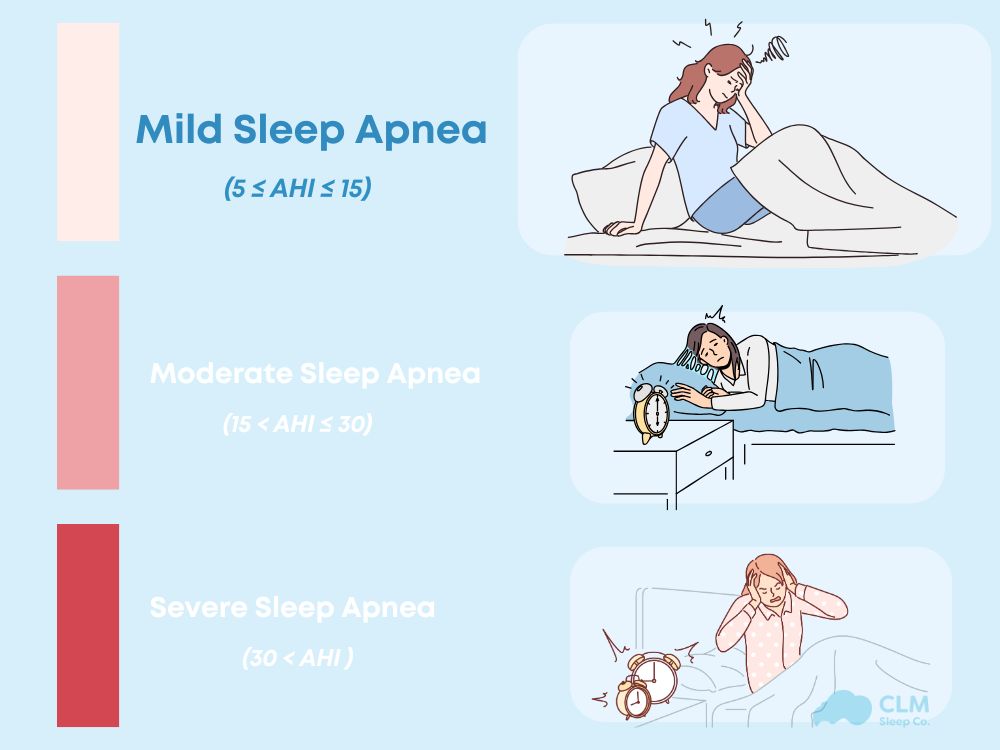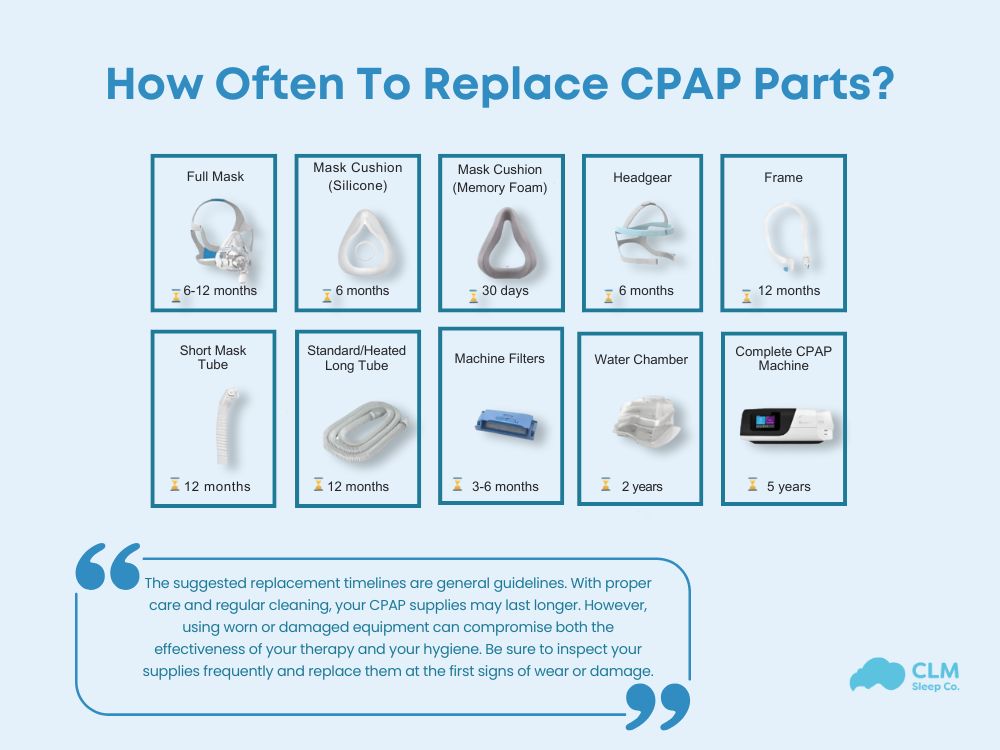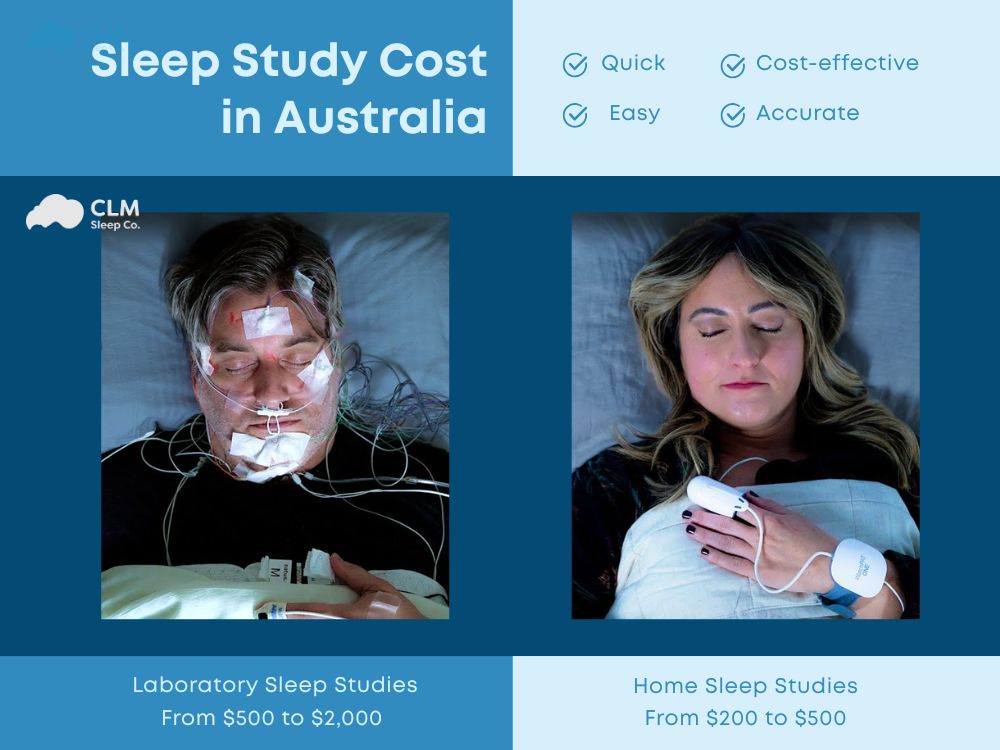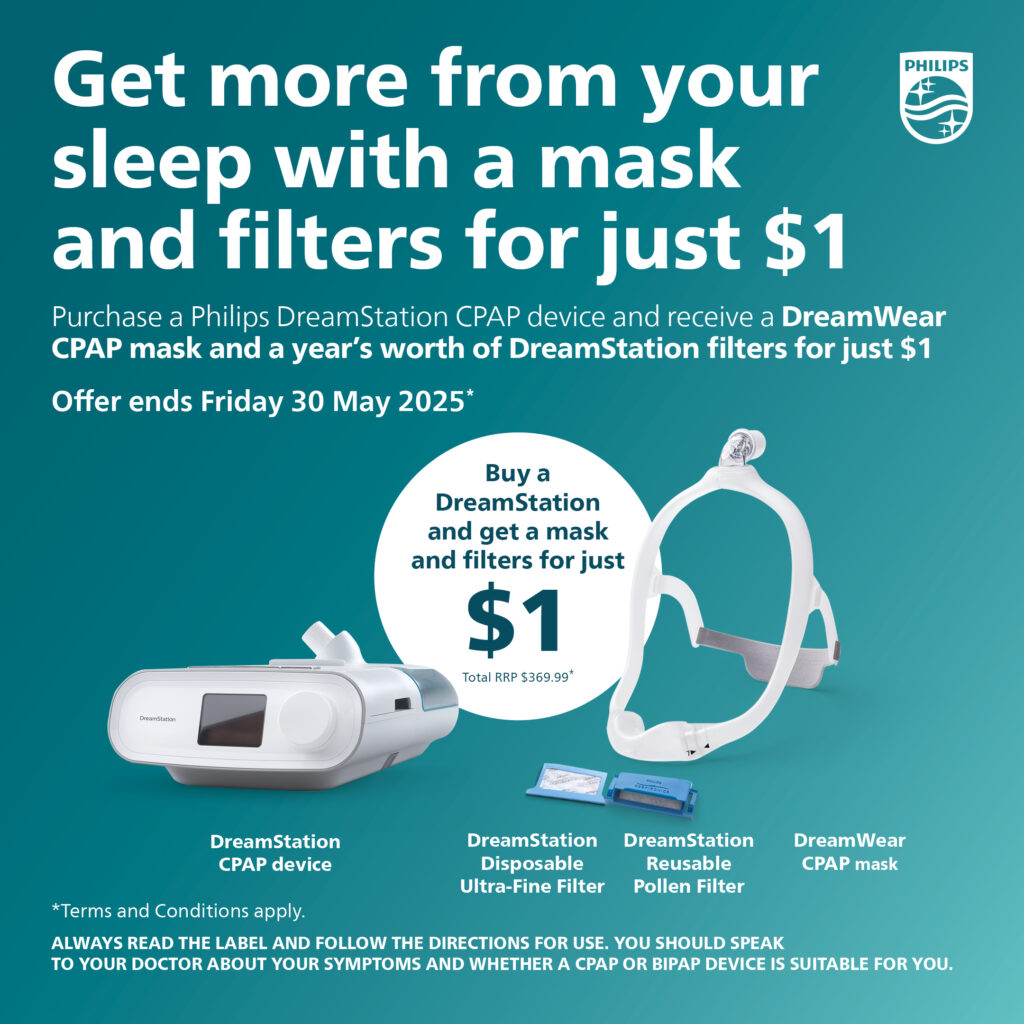Mild sleep apnea is a common sleep disorder that many people may not know they have. In this condition, breathing repeatedly stops and starts during sleep. While less severe than other forms of sleep apnea, untreated mild cases can lead to heart problems, fatigue, and cognitive difficulties. Early diagnosis and treatment will help the patient quickly improve sleep quality and overall health. The following article from CLM Sleep discusses symptoms, causes, and approaches to treatment to help you manage mild sleep apnea effectively.
What is Mild Sleep Apnea?
Mild sleep apnea is defined as a form of sleep apnea with breathing interruptions between 5 and 15 per sleeping hour. In other words, it can be thought of as less severe than moderate or serious forms of obstructive sleep apnea.
The index that measures the severity of sleep apnea is referred to as the Apnea-Hypopnea Index and is quantified as the total number of respiratory interruptions observed per hour of sleep:
| Sleep apnea severity | AHI score | Breathing disruptions per hour |
| Mild sleep apnea | 5–15 | 5–15 |
| Moderate sleep apnea | 15-30 | 15-30 |
| Severe sleep apnea | Over 30 | Over 30 |
Although mild sleep apnea might seem less dangerous, it can still lead to fatigue, poor concentration, and an increased risk of health conditions such as hypertension and cardiovascular disease if left untreated. Early detection and timely treatment are crucial for improving sleep quality and preventing complications.
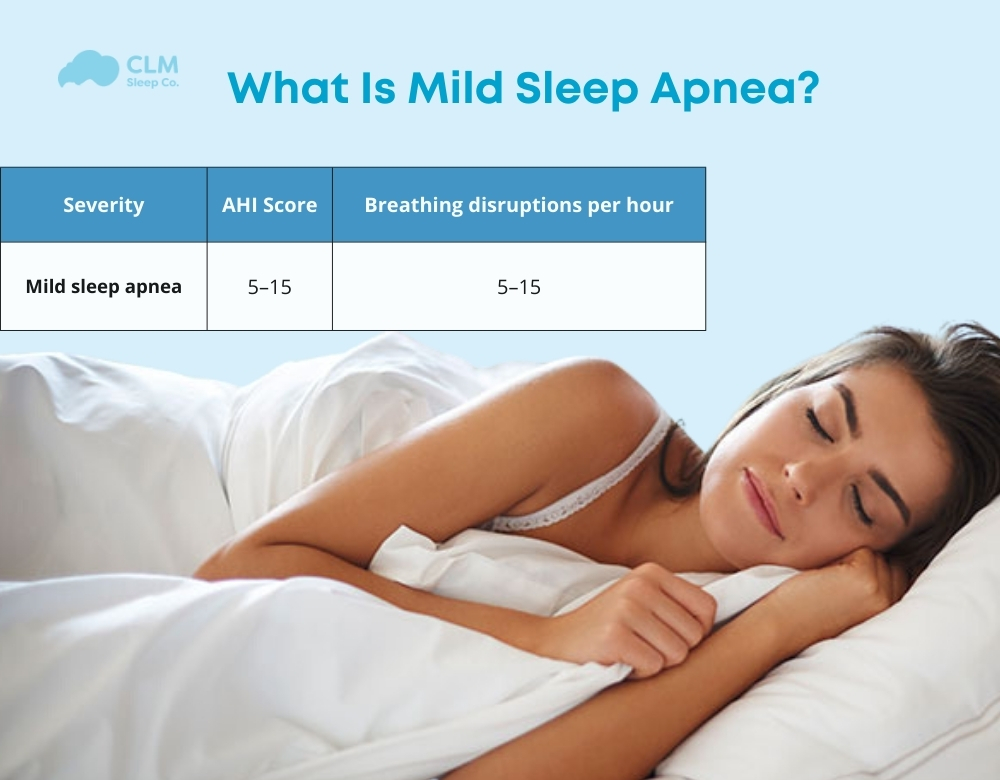
Symptoms of Mild Sleep Apnea
Most doctors use a polysomnography test (sleep apnea test) to diagnose mild sleep apnea. Scientists measure everything from brain waves and oxygen levels to heart rate, leg movements, and snoring while a person sleeps.
Because, likely, you have not had a sleep study conducted on yourself, you may find it difficult to spot mild symptoms. Nonetheless, early diagnosis is the only way to avoid untreated symptoms that can hinder long-term health. So, schedule a visit to your healthcare provider if you have trouble sleeping or if you remain fatigued for prolonged periods so that they can evaluate you properly.
Nighttime Symptoms:
Light or occasional snoring.
Brief episodes of apnea that occur infrequently.
Light sleep or mild sleep disruptions (often unnoticed).
Symptoms may worsen depending on sleep position, such as increased snoring when lying on the back.
Daytime Symptoms:
Mild fatigue upon waking.
Slight daytime sleepiness, but it does not significantly interfere with daily activities.
Occasional mood swings or irritability.
Subtle discomfort in the throat upon waking, even if not severe.
Early detection and intervention are important for the management of symptoms and reducing associated health risks.
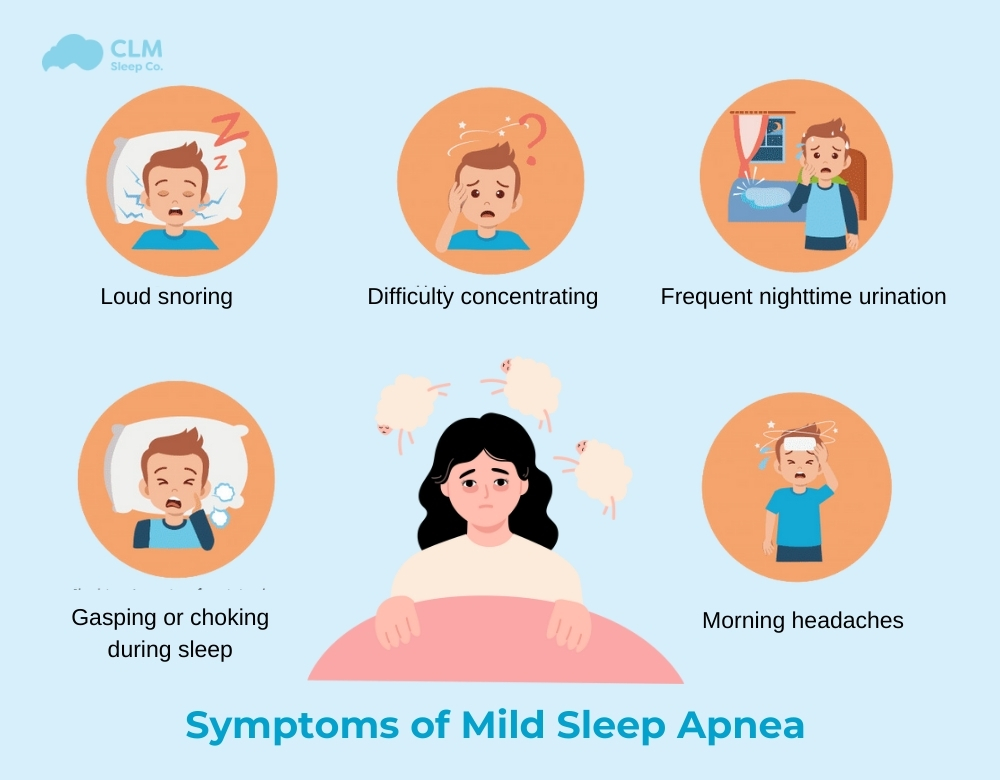
Sleep apnea measured by the AHI is divided into three levels: severe sleep apnea, moderate sleep apnea, and mild sleep apnea, which is the mildest level. The symptoms of mild sleep apnea are usually mild and have little impact on daily life, making them very difficult to recognize. However, if you notice any unusual signs, you can visit a doctor and undergo sleep studies to detect the disease early or simply feel more at ease.
Causes and Risk Factors
Mild sleep apnea stems from a mix of physical attributes and lifestyle habits. Knowing these contributing factors aids in its prevention and treatment:
- Obesity: Carrying extra body fat, particularly around the neck, can constrict the airway, increasing the chance of collapse during sleep.
- Advancing Age: Sleep apnea risk rises with age, especially after 40, due to reduced muscle tone and altered sleep architecture.
- Gender: Men are at higher risk, while the likelihood in women grows post-menopause.
- Genetics: A family history of sleep apnea may raise the likelihood of developing the condition.
- Unhealthy Lifestyle: Smoking, heavy alcohol intake, and sedatives relax throat muscles, heightening the risk of airway obstruction.
- Structural Factors: A naturally narrow airway, large tonsils, or a deviated septum can hinder proper airflow during sleep.
- Sleeping Position: Lying on the back can cause the tongue and soft tissues to fall back, blocking the airway.
- Chronic Nasal Issues: Persistent nasal congestion or allergies can impede breathing, worsening sleep apnea symptoms.
By identifying these factors and adopting healthier habits, you can lower the risk or severity of mild sleep apnea.
Common factors include obesity, aging, smoking, alcohol use, genetics, and sleeping on your back
Diagnosis of Mild Sleep Apnea in Australia
Diagnosis of mild sleep apnea in Australia usually begins with an assessment by a sleep specialist, followed by detailed sleep studies to ensure an accurate diagnosis.
- In-lab sleep study: An in-lab polysomnography is the gold standard for diagnosing sleep apnea. This test is conducted overnight in a hospital or sleep clinic, monitoring brain activity, breathing patterns, oxygen saturation, heart rate, and body movements. The data collected provides valuable insights into the frequency of breathing disruptions and helps determine the severity of the condition.
- Home sleep study: A home sleep study offers a more convenient option, allowing patients to conduct the test in their own homes. Using portable equipment, this study measures breathing rate, blood oxygen levels, and heart rate during sleep. While it may provide less detailed information than an in-lab study, it is still effective in detecting sleep apnea and is a suitable choice for those who prefer a more comfortable testing environment.
Both diagnostic methods are widely available across Australia, enabling timely detection and personalized treatment plans for individuals experiencing mild sleep apnea signs.
Treatment Options for Mild Sleep Apnea
Studies on mild Obstructive Sleep Apnea (OSA) with an Apnea-Hypopnea Index between 5 and 15 have proven that this condition can, in fact, induce symptoms and be pathogenic even in the absence of significant associated conditions. Effective treatment, however, can achieve excellent results.
Mild OSA is a chronic disease that cannot be treated to be cured entirely. Treatment focuses on managing symptoms and making lifestyle changes to minimize their effects. It should consider the intensity of symptoms and a patient’s preference regarding their way of living, as well as an associated ailment. A gradual treatment process can be adopted by both you and your health practitioner to try out varied treatments for the most effective one. In cases where a particular treatment does not give the desired results, it may be stopped and an alternative used.
The treatment options for mild sleep apnea usually involve lifestyle changes and devices that keep the airway open:
Mild sleep apnea treatment without CPAP through lifestyle changes:
- Weight Loss: Losing excess weight, quitting smoking, and reducing alcohol intake can alleviate sleep apnea symptoms.
- Sleep Position: Sleeping on your side or stomach rather than on your back may help keep the airway clear.
- Nasal Congestion Treatment: Address allergies or nasal congestion to improve breathing.
- Avoid Respiratory Depressants: Avoid alcohol and sedatives before bedtime.
- Sleep Hygiene: Maintain a consistent sleep schedule and ensure adequate sleep.
- Exercise: Engage in at least 150 minutes of physical activity per week to enhance respiratory health.
Airway Support Devices
- CPAP Therapy: Your doctor may recommend a Continuous Positive Airway Pressure (CPAP) machine, which helps keep the airway open during sleep.
- Additional Aids: Nasal decongestants, saline nasal sprays, or nasal strips can also provide relief.
Medications
- Nasal Steroids: Topical nasal steroids like fluticasone or budesonide may be effective in treating mild sleep apnea in children.
- Montelukast (Singulair): This medication may help reduce symptoms in children with allergic reactions.
If lifestyle changes and devices are ineffective, or if the condition progresses to moderate or severe levels, surgery or implant devices may be considered as the next steps for treatment.
Discover treatment options for mild sleep apnea: lifestyle changes, positional therapy, and medical devices (Source: CLM Sleep)
Self-Care Tips for Managing Mild Sleep Apnea
Managing mild sleep apnea often involves lifestyle changes to ease symptoms and enhance sleep quality:
- Maintain Healthy Weight: Reducing excess neck fat helps open the airway.
- Sleep on Your Side: Avoid back sleeping to prevent airway blockage.
- Stick to a Sleep Schedule: Maintain consistent sleep and wake times.
- Limit Alcohol and Sedatives: They relax throat muscles, increasing airway collapse risk.
- Treat Nasal Congestion: Use decongestants or saline sprays to ease breathing.
- Quit Smoking: Smoking inflames the airway, worsening symptoms.
- Exercise Regularly: Aim for 150 minutes of moderate exercise weekly.
- Elevate Your Head: Use a wedge pillow to help keep the airway open.
- Use a Humidifier: Moist air reduces throat dryness and irritation.
These self-care tips can help reduce symptoms. If issues persist, consult a healthcare provider for further guidance.
Conclusion of the article
Mild sleep apnea, while less severe, can still affect your health if untreated. Early symptom recognition and self-care measures like lifestyle changes and sleep aids can greatly enhance sleep quality and reduce risks. Partnering with a healthcare provider helps you find the best treatment approach. Addressing sleep apnea early will help improve well-being, boost energy, and lead to better sleep. If you notice symptoms, consult a healthcare professional for evaluation and a tailored treatment plan.
Explore our website for in-depth information on managing sleep disorders and their effects on your health. At CLM Sleep, we provide comprehensive diagnosis and treatment services for sleep apnea, helping you restore your sleep quality and improve your health. At the same time, providing quality treatment devices from top brands such as ResMed, Fisher & Paykel, Philips,… at Cpapdiscount.
Source
1. Jennifer M. Slowik; Abdulghani Sankari; Jacob F. Collen.(2024).Obstructive Sleep Apnea.(NIH).https://www.ncbi.nlm.nih.gov/books/NBK459252/
2. Vgontzas, A. N., Karagkouni, E., He, F., Li, Y., Karataraki, M., Fernandez-Mendoza, J., & Bixler, E. O. (2024). Mild-to-moderate obstructive sleep apnea and mortality risk in a general population sample: The modifying effect of age and cardiovascular/cerebrovascular comorbidity. Sleep, 47(7), 1-9. https://pubmed.ncbi.nlm.nih.gov/37203593/
3. Yu, J., Zhou, Z., McEvoy, R. D., Anderson, C. S., Rodgers, A., Perkovic, V., Neal, B., Zhang, H., Li, Q., Heeley, E., & Huang, Y. (2019). Association of positive airway pressure with cardiovascular events and death in adults with sleep apnea: A systematic review and meta-analysis. JAMA, 319(20), 2198–2210. https://pubmed.ncbi.nlm.nih.gov/30590811/
4. Vgontzas, A. N., He, F., Fernandez-Mendoza, J., Karagkouni, E., Pejovic, S., Karataraki, M., Li, Y., & Bixler, E. O. (2024). Age-related differences in the association of mild-to-moderate sleep apnea with incident cardiovascular and cerebrovascular diseases. Sleep Medicine, 113, 306–312. https://doi.org/10.1016/j.sleep.2023.11.1133
